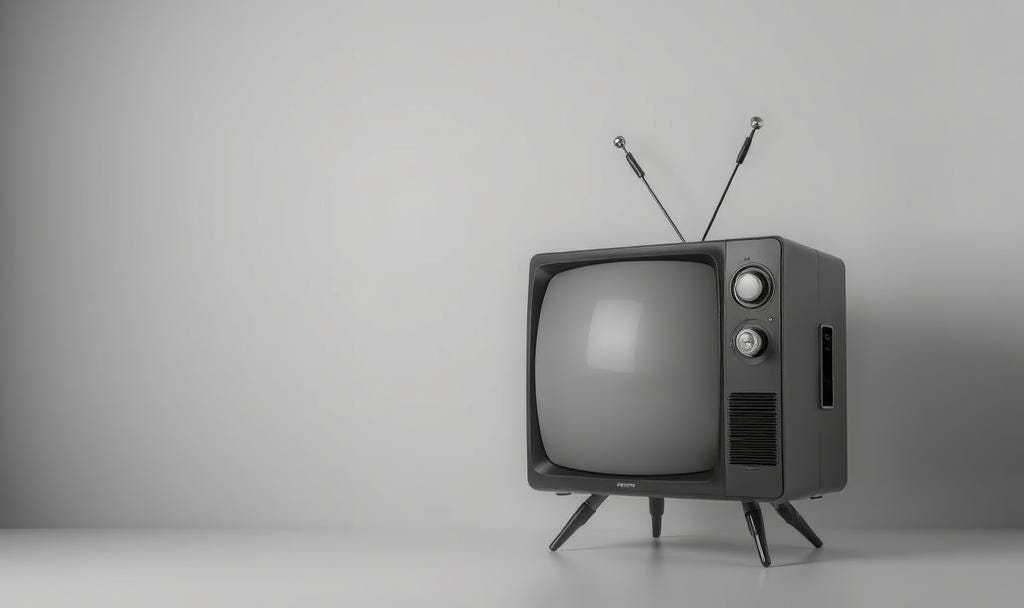Do Your Kids Watch Reruns?
On the cultural (il)literacy of Gen Z
Reading List
The Wisconsin Policy Forum reports that teacher turnover rates keep coming down
The Effects of K-12 Computer Science Policies on Postsecondary CS Participation
Districts OK Union Raises, Don’t Have Money to Fund Them
Oregon faces years of digging out from its post-pandemic academic hole
Teacher Struggle to Get Certified After COVID Waiver for Licensure Exams Ends
This isn’t a rant about screen time, but more of an old man’s gripe about the kind of content kids are watching today.
Like most Millennials, I don’t remember a time before cable TV. I certainly watched my share of it. As a kid, I watched plenty of shows designed for my age group. Nickelodeon fans will remember Hey Dude, Doug, Salute Your Shorts, and The Adventures of Pete and Pete. They were made for teens and pre-teens, with characters and storylines written squarely for us as the intended demographic.
But I also enjoyed content that wasn’t written explicitly “for kids.” On Nick at Nite, I laughed at reruns of Bewitched, Mister Ed, and The Dick Van Dyke Show. I solved crimes with Matlock and Andy Griffith, and I loved Lucy, Gilligan, and Mary Tyler Moore.
Once we got a TV with a remote, I became an avid channel flipper. I’d stumble into reruns and movies—sometimes just snippets, sometimes the whole thing. I must have seen Rudy, Forrest Gump, Star Wars, To Kill a Mockingbird, and The Shawshank Redemption dozens of times in pieces and parts.
Most of the time I watched alone. Other times I joined my parents: the 6 o’clock news with one, or primetime shows like The Wonder Years and a quirky show called Ed with the other. For long stretches, Saturday Night Live was a regular family ritual, and we laughed together at Chris Farley, Phil Hartman, Tim Meadows, Mike Myers, and Cheri Oteri.
When I was on my own, I also watched “adult” shows like Seinfeld, ER, The Simpsons, and Married… with Children.
Looking back, some of it was good, some of it was trash—but it was broad. And importantly, it wasn’t all engineered for an 11-year-old brain.
My kids don’t get that variety. Instead of a communal TV in the living room, they retreat to the basement with their own devices and headphones. One sometimes finds quirky gems on YouTube, but most of their time is spent on bubblegum content tailored for pre-teens. Even our family “inside jokes” are limited to the few shows we all watch together—namely Shark Tank, The Mandalorian, and The Great British Bake Off. They haven’t watched the classic shows or movies that shaped so many cultural touchstones for earlier generations.
And because Netflix and Disney are ad-free, they never sit through commercials—or get bored enough to channel surf into something unexpected.
Is this a tragedy? Of course not. I know I sound like an old fogey, and my parents probably had similar laments about me. In fact, time-use surveys show Americans of all ages are spending more time indoors, alone, and on devices. My kids are simply part of that long-term cultural shift.
I get all that. But it’s my turn to bemoan what’s changed and what it means for the current generation. And I’ve been feeling a real sense of loss lately at the shared cultural variety my kids are missing out on.




Just a suggestion, from the father of three girls who are a bit older than yours but not much (the youngest is in her third year of college...)
We used to watch TV as a family somewhat frequently. Maybe not every night, but multiple nights a week. When we did, we watched a lot of the "old reruns" you mention. Favorites off the kids were Hogans Heroes, Batman, Get Smart, Green Acres, and a few other odds and ends. They'd even watch the original Star Trek when Dad wanted to watch one....
I also "exposed" them to early Warner Brothers cartoons - Bugs Bunny and the like, including some of the "politically incorrect" ones from the 1930's and 40's... Good to pause and have a conversation about.
Can’t believe you didn’t mention Hirsch’s “Cultural Literacy!”
106 million Americans watched the finale of M*A*S*H. 20 million watch the Super Bowl, which is the most watched program each year.
We have so few common frames of reference anymore. Hence, we don’t understand each other.